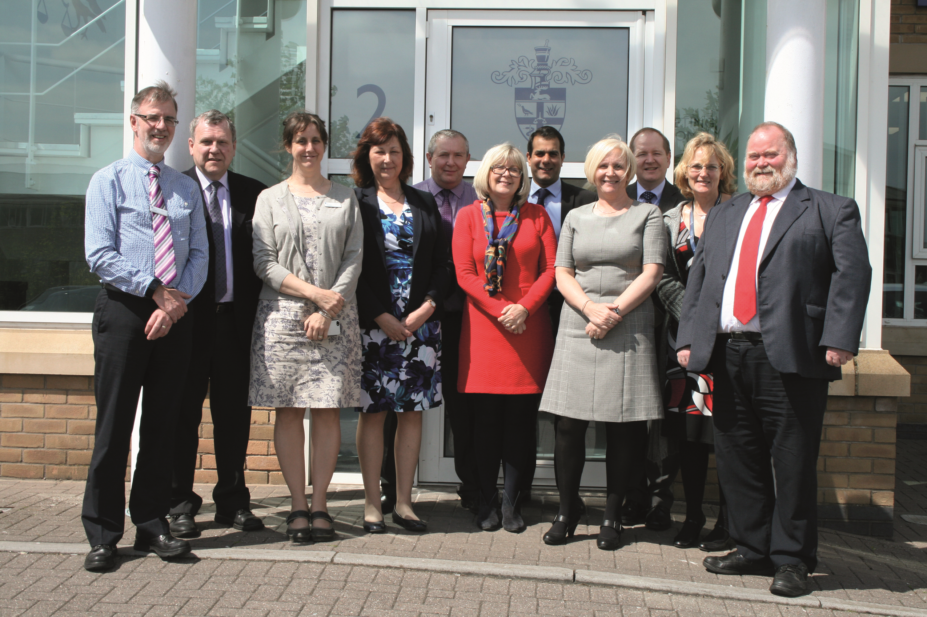
Royal Pharmaceutical Society, Wales
The Welsh Pharmacy Board (WPB) met for its second meeting of the year on 3 May 2017. The meeting was held at RPS Wales’ headquarters in Pontprennau, Cardiff.
Opening the board meeting, Mair Davies, director for RPS Wales, and Suzanne Scott-Thomas, chair of the WPB, updated the board on matters arising from the previous meeting held on 2 February 2017. It was then noted that all candidates for the 2017 Welsh pharmacy board elections had been elected unopposed. While this does offer stability and continuity, said Scott-Thomas, a degree of competition and the prospect of new members is desirable. A brief discussion followed on what more could be done to encourage Welsh members to put themselves forward for the next election: one suggestion was to invite members to open board meetings, for example.
Scott-Thomas noted that blogs written by Welsh board members on their experience had been illuminating and encouraged more of the same.
Consultation responses
Elen Jones, practice and policy lead at the Welsh directorate, then briefed the board on policy work and consultation responses. The WPB devotes a lot of time to consultation responses, both within Wales and UK-wide, Jones reported. RPS Wales is very influential in this activity, with good feedback being received from the Society’s input to the cross-party group on dementia, tasked with developing a dementia strategy for Wales. The use of case studies in RPS Wales’ response, in particular, was welcomed by other royal colleges. Case studies offer impact that does not come from opinion alone, said Jones.
Continuing the theme of consultation responses, Ross Gregory, head of external relations at the RPS, announced that representatives of RPS Wales had met with Ruth Hussey, chair of the parliamentary review into the future of health and social care in Wales and former chief medical officer for Wales, and called on members to submit contributions to the review through a survey on the RPS website. Response to the survey was low, despite regular communication to members. Other activities included securing a speaking slot at a seminar at seminar on the future of primary care in Wales, scheduled for July 2017; an invitation to give evidence to the health, social care and sport committee inquiry into primary care on 11 May 2017, and securing a further place at the National Assembly for Wales Public Accounts Committee inquiry into medicines management, scheduled for 19 June 2017, in which RPS Wales will provide evidence to the Public Accounts Committee.
Influential input
Gregory added to Jones’ earlier comments on RPS Wales’ influence at the cross-party group on dementia. At this, representatives of the society had called for a reduction in inappropriate prescribing of antipsychotics, greater involvement of the pharmacist in the routine management and review of antipsychotics, and adherence to NICE guidelines on using the lowest possible dose for initial treatment of dementia when appropriate. At a round table meeting held by the cross-party group, it was agreed that RPS recommendations should continue to be called for, and incorporated into the final draft strategy.
Jamie Hayes, board member, highlighted that such lobbying also translates into new career opportunities for pharmacists, giving as an example the creation of roles for pharmacists in GP surgeries. Elen Jones also added RPS Wales’ input into primary clusters as a further example.
In a final update from the public affairs department, Gregory added that a new position of digital affairs assistant had been created by RPS Wales, and that the successful candidate would be taking up their post in May. The postholder will promote the work of RPS Wales both internally and externally, build relationships with stakeholders and media contacts, and drive up activity on social media.
Local engagement
Jodie Williams, professional development and engagement lead at the RPS, reported that movement to the new local engagement model, RPS Local, is well underway. Williams has, she reported, worked with RPS Scotland, as well as the Society’s HR, finance and legal departments, to create a role description for RPS local coordinators. These roles have been advertised in The Pharmaceutical Journal. Williams has also been working to develop activity packs for the use of local co-ordinators, including scoping work with Public Health Wales, Antimicrobial pharmacists and other key stakeholders to develop an activity pack on the theme of antimicrobial resistance.
Conferences
Finally, the board was reminded to save the date for the 2017 RPS annual conference, which is relaunching in a new venue — the Vox, Birmingham — on 3–4 September 2017.
The board was also keen to see promotion of the 78th FIP World Congress of Pharmacy and Pharmaceutical Sciences. The event, co-hosted by the RPS and the FIP, will be held in Glasgow between 2—6 September 2018, and will be on the overarching topic of ‘Pharmacy: Transforming outcomes’.
- The next open meeting of the Welsh Pharmacy Board will be held on 20 June 2017.

